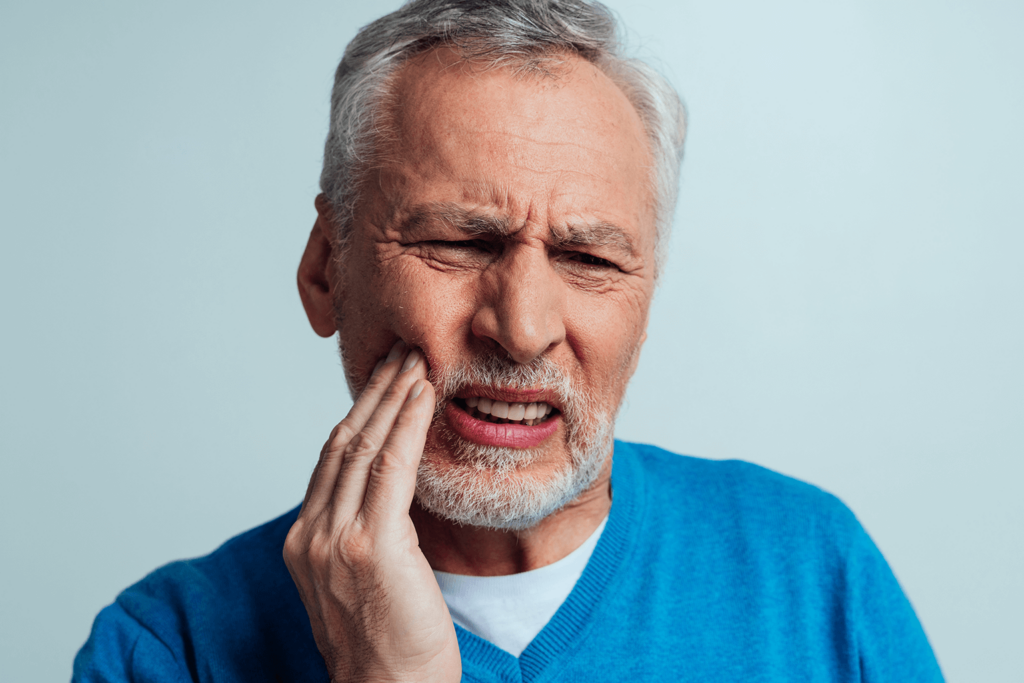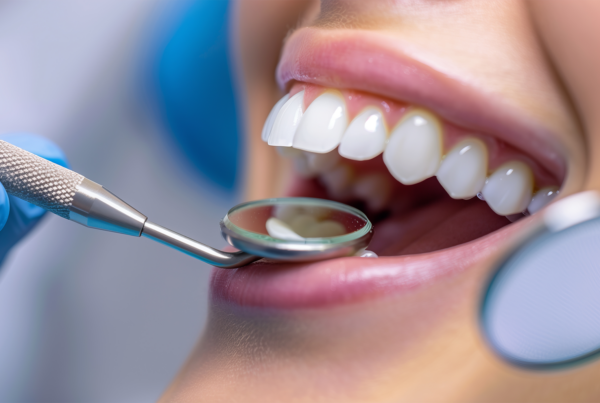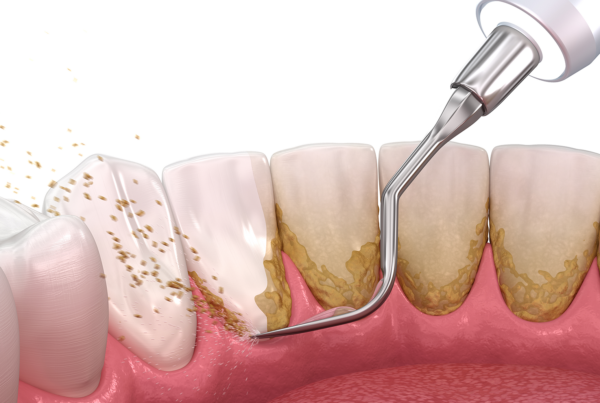Dental pain can be a serious issue that affects many of us at some point in our lives. Whether it’s a sudden twinge or a persistent ache, dental pain can range from mild to severe and can be caused by a variety of factors. However, not all dental pain is the same, and understanding the different types of dental pain and what they mean can help you get the right treatment and relief. In this blog, we’ll take a closer look at the different types of dental pain and what they could mean for your oral health. From toothaches and jaw pain to sensitive teeth and gum pain, we’ve got you covered. So, whether you’re experiencing dental pain for the first time or have been dealing with it for a while, this blog is for you!

Toothaches – The Most Common Type of Dental Pain
Toothaches are one of the most common types of dental pain and can be caused by a variety of factors, such as cavities, gum disease, and tooth injury. A toothache usually starts as a dull ache and can become more intense as time goes on. If you’re experiencing a toothache, it’s important to see a dentist as soon as possible to determine the cause and get the appropriate treatment. Toothaches can range from mild to severe and can be accompanied by other symptoms, such as sensitivity to hot and cold, swelling, and even a fever. In some cases, a toothache can be a sign of a more serious issue, such as an infection, so it’s important to get it checked out as soon as possible.
Can a Toothache Go Away On Its Own?
Many people may wonder if a toothache can go away on its own and the answer is, it depends. Mild toothaches caused by temporary issues, such as sensitivity to hot or cold foods, may go away on their own with time. However, if the cause of your toothache is more serious, such as a cavity or gum disease, it is unlikely to go away on its own and may even become worse without treatment.
It’s also important to keep in mind that toothaches can be a sign of a more serious issue, such as an infection. If you experience a toothache that is accompanied by a fever, swelling, or other symptoms, it’s important to see a dentist as soon as possible. An infected tooth can cause serious damage to your oral health and overall health if left untreated.
Jaw Pain – A Sign of Temporomandibular Joint Disorder (TMD)
Jaw pain is another common type of dental pain that can be caused by a variety of factors, including temporomandibular joint disorder (TMD). TMD is a condition that affects the jaw joint and the surrounding muscles and can cause pain, stiffness, and limited jaw movement. Jaw pain can also be a sign of bruxism, which is the habit of grinding or clenching your teeth. In some cases, jaw pain can be managed with simple lifestyle changes, such as avoiding hard and chewy foods, and in other cases, a more comprehensive treatment plan may be needed.
What Causes Gum Pain?
Gum pain can be a sign of a variety of oral health issues and can range from mild to severe. Some of the most common causes of gum pain include gum disease, gum injury, and tooth abscesses.
Gum disease is a common cause of gum pain and is caused by the buildup of plaque and tartar along the gumline. This can lead to inflammation and bleeding gums, which can be painful. Gum disease can also cause the gums to pull away from the teeth, creating pockets where bacteria can accumulate and cause further damage.
Gum injury can also cause gum pain and is often the result of trauma to the gums, such as biting your cheek or gums, or aggressive brushing. Gum injury can cause the gums to become swollen and tender and can also lead to bleeding.
Tooth abscesses are another cause of gum pain and are caused by a buildup of pus in the gums. This can be a result of a bacterial infection in the tooth or gum and can cause serious pain and swelling.
If you’re experiencing gum pain, it’s important to see a dentist or oral health professional to determine the cause and get the appropriate treatment. A great dental team will be able to get you relief from gum pain and protect your oral health.
How To Manage Dental Pain At Home
While it’s important to see a dentist or oral health professional to get the right treatment and relief, there are a few things you can do at home to manage dental pain in the meantime. Here are some tips for managing dental pain at home:
- Over-the-counter pain relievers: Over-the-counter pain relievers such as ibuprofen or acetaminophen can help relieve tooth and gum pain. Be sure to follow the instructions on the label for safe and effective use.
- Salt water rinse: Rinsing your mouth with warm salt water can help reduce swelling and clean the affected area. Simply mix a teaspoon of salt in a glass of warm water and rinse your mouth for about 30 seconds. Repeat as needed.
- Cold compress: A cold compress can help relieve tooth pain by numbing the affected area. Simply wrap a bag of ice in a cloth and apply it to the affected area for about 15 minutes at a time. Repeat as needed.
- Clove oil: Clove oil has natural antiseptic and pain-relieving properties that can help relieve tooth pain. Simply apply a few drops of clove oil to a cotton ball and apply it to the affected area.
- Avoid hard and crunchy foods: Avoiding hard and crunchy foods can help reduce the pressure on the affected tooth and relieve tooth pain. Stick to soft, easy-to-chew foods until you can see a dentist or oral health professional.
It’s important to keep in mind that these tips are only for managing dental pain and not a substitute for professional treatment. If your dental pain is severe or if you experience other symptoms such as fever, swelling, or difficulty swallowing, it’s important to see a dentist or oral health professional as soon as possible.
So, if you’re experiencing dental pain, don’t hesitate to use these tips to help manage the pain at home while you seek professional treatment.
In Conclusion
In conclusion, understanding the different types of dental pain and what they mean is an important step in getting the right treatment and relief. Whether you’re experiencing toothaches, jaw pain, gum pain, or another type of dental pain, it’s important to see a dentist or oral health professional to determine the cause and get the appropriate treatment. With the right care and attention, you can get back to enjoying life without dental pain.
Don’t let dental pain hold you back. A visit to our dental clinic can help you get the right treatment and relief, and can also help you prevent future dental issues. Regular dental check-ups and cleanings can help you maintain good oral health and catch any potential problems early on.
So, if you’re experiencing a dental emergency or have questions about your oral health, don’t hesitate to visit Encino Dental Studio. Our friendly and experienced professionals will ensure that you get the best dental care possible. Contact us today to schedule an appointment.








